Can cyclists and other road users get on?
- Published
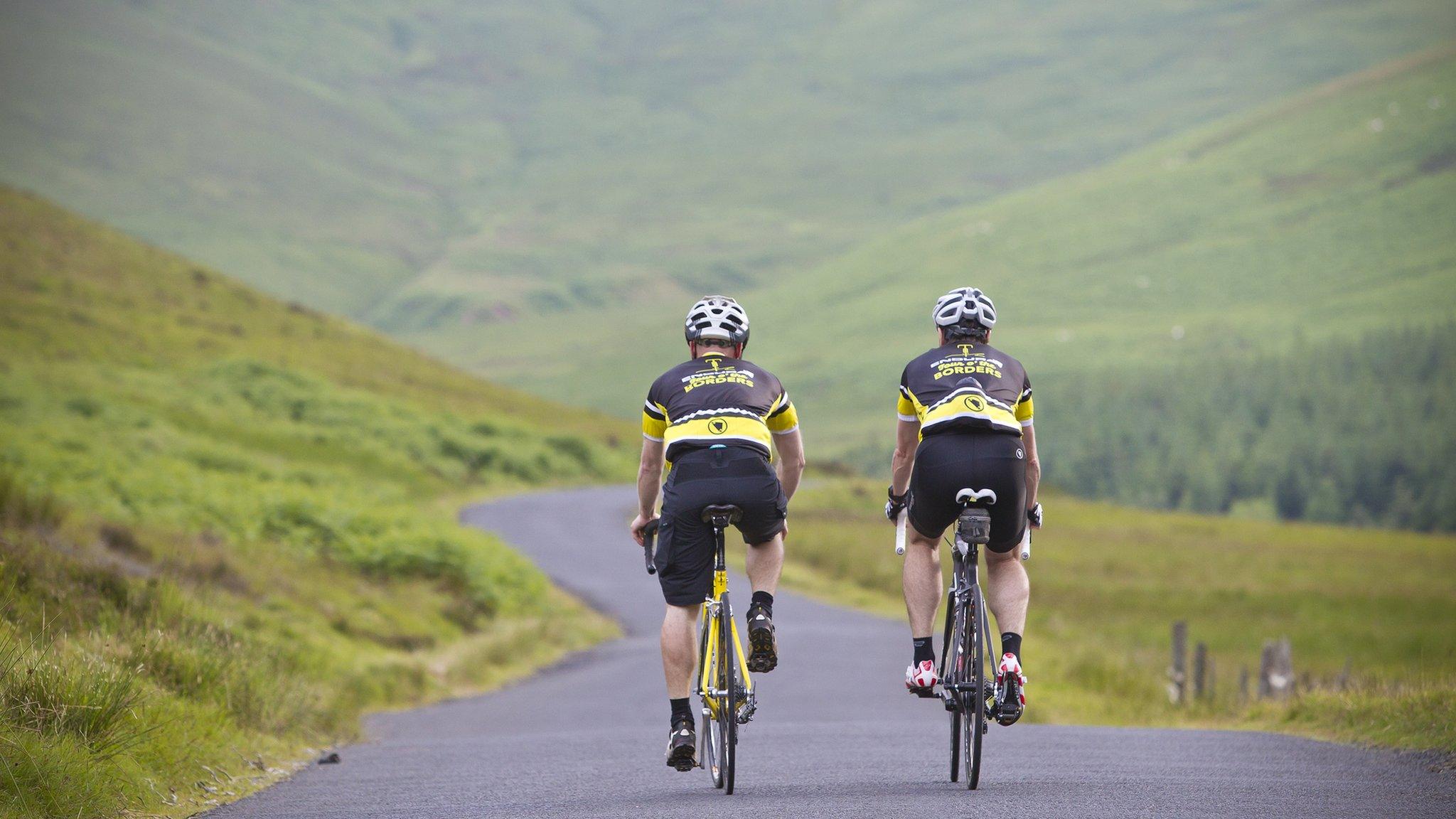
The Tour O' The Borders was recently affected by allegations of riders being assaulted
Almost since the day they first took to the roads, cyclists have not always been universally popular.
Tales of sabotage with nails and broken glass dogged the early days of the Tour de France.
The issue has resurfaced recently with reports of assaults on riders in the Tour O' The Borders and tacks in tyres at Pedal Scotland.
Is it a sign of growing intolerance towards the sport or simply the action of a frustrated few?
Neil Dalgleish, of Hillside Outside who organises the Tour O' The Borders, is in a better position than most to comment.
'Activity destination'
The region is keen to promote itself as cycling friendly and he believes that, by and large, it is.
"The real issue isn't 'angry farmers versus angry cyclists', despite some of the media coverage," he said.
"The important thing is that cycling is bringing millions of pounds to the Borders, creating jobs and helping Scotland become a significant, year-round outdoors and activity destination.
"A few people with grievances, and it really is only a few, should not be allowed to threaten or undermine all those positives with aggressive and potentially dangerous 'protest' behaviour."
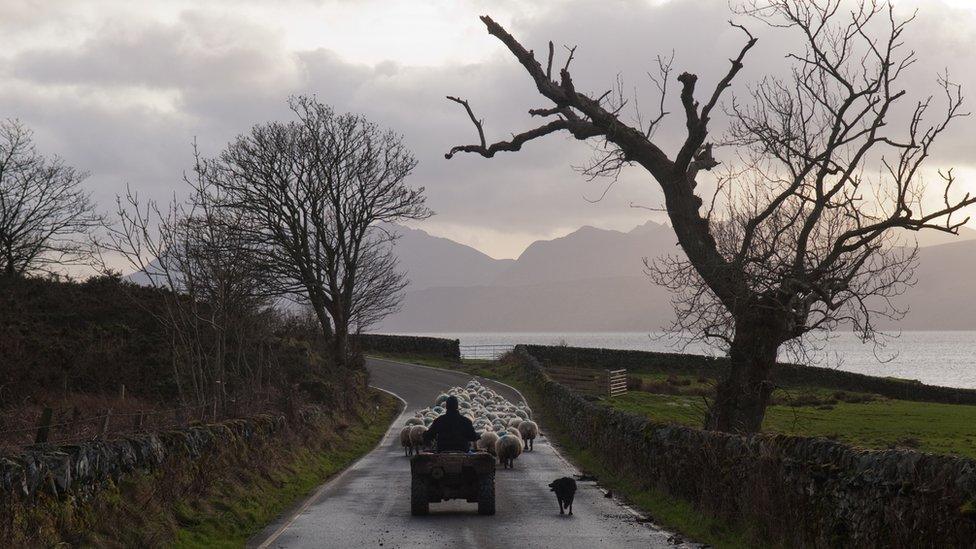
The NFU said it was important for race organisers to liaise with the farming community
And, since he mentioned them, how do farmers view their relationship with the pursuit?
An NFU Scotland spokesman said: "In general, NFU Scotland has absolutely no problem with cycling and cyclists.
"Cycling is a fantastic way for the public to enjoy Scotland's landscape, which our members work so hard to maintain with their hard work."
However, he stressed it was important for cyclists to be "aware and courteous" when sharing the road with large farm vehicles.
"As far as road events are concerned, whether it be organised cycles, road races or any other organised event, we believe it is important for the police and organisers to communicate with the local farming community," he added.
"It is particularly important at this time of year as many of these usually quiet roads are very busy with farmers transporting harvest."
Ian Taylor, director of the Alliance of British Drivers, also insisted his organisation was not anti-cycling.
However, he said they did have issues with "precious road space" being prioritised for other users when the car remained "people's number one choice" for travel.
"Nobody objects to an occasional road closure for a special event, but they are becoming all too frequent and regular, for no other reason than discouraging car use and imposing so-called modal shift," he said.
"We say it should be up to people to choose their mode - and the duty of those in charge is to cater for that - not have it imposed."
Mr Taylor stressed there was "no excuse" for attacking anyone and realised there were faults on both sides.
'Worked hard'
"Reduction of 'conflict' can come about only when both sides recognise the other's right to be there and act with due consideration to all other road users - a dose of simple good manners," he said.
"Some cyclists are wilfully inconsiderate, acting as though laws are for everyone but them.
"Unfortunately, all drivers are not 'angels' either."
Back in the Borders, the local council said it appreciated that closures for events like the Tour O' The Borders did present an "inconvenience" for local residents.
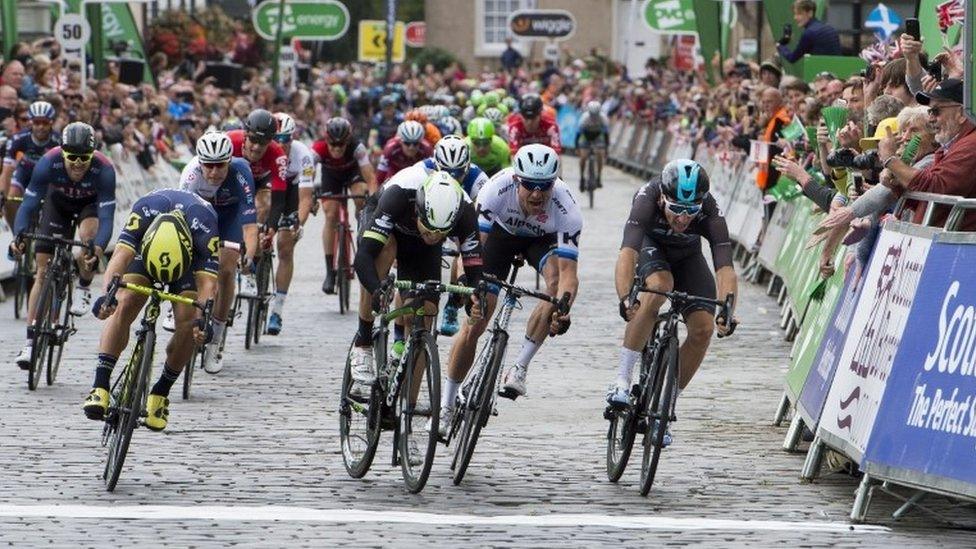
The Tour of Britain finished a stage in the Scottish Borders this year
"However, we have worked hard to ensure the disruption is minimised, while at the same time ensuring a significant event - involving an estimated 3,000 cyclists and generating hundreds of thousands of pounds for the local economy - can take place successfully and safely," a spokesperson said.
"This has included moving this year's event from August to the quieter month of September, which also ties into the Scottish Borders tourism strategy which aims to encourage event activity outwith the main tourism season."
Nathan Kaczmarski, head of communications and events for Cycling Scotland, said it tried to share information before, during and after an event.
'Individual idiots'
"As an event organiser, we always listen to feedback and make changes to mitigate disruption wherever possible, while working with police to tackle any individual idiots who risk causing serious injury through reckless acts," he said.
"Everyday cycling is different to mass participation cycling events, just as there is a difference between running to catch a train and running the marathon," he added.
He said the Scottish Health Survey had shown more people now cycled for recreation than played golf, tennis or football.
"The portrayal of an 'us and them' conflict between a minority cycling and a majority driving is increasingly outdated," he said.
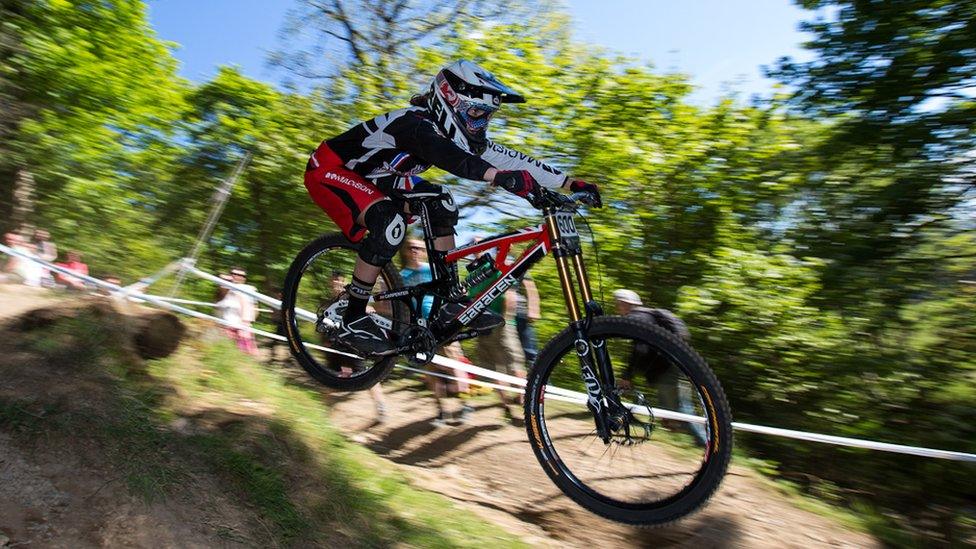
Cycling makes a big contribution to the economy in the Scottish Borders
Mr Dalgleish said a huge amount of work went into organising an event and a small number of protestors should not be allowed to spoil them.
"There are so many positives connected to the growth of cycling here, something which is increasingly recognised and encouraged locally, so the tiny minority of objectors can't be allowed to undo the good work and financial investment," he said.
"There should be recognition and respect for cycle tourism as an important part of life and the economy here, just as farming is."
He said the Tour O' The Borders had changed its route and date to try to minimise its effects on other road users.
"I'm not pretending road closures don't cause problems though - even small closures for road works can cause delays and inconvenience," he said.
"However, our events help bring money to many businesses and a good reputation for the area, so I do believe it's worth it for the area as a whole.
"It's once a year, and many of the closures are relatively short."
'Respect one another'
He said he did not believe that an "us and them" attitude was on the rise, simply that there was a "small number of people" who seemed to dislike cyclists.
And, overall, he was upbeat about the future relationship between bike riders and other road users.
"All road users should respect one another," he said.
"It's certainly true that in France, Majorca and Italy for a few examples, drivers seem to have a much better awareness of cyclists, and a different attitude towards us.
"Hopefully that's starting to happen here too."
- Published18 September 2017
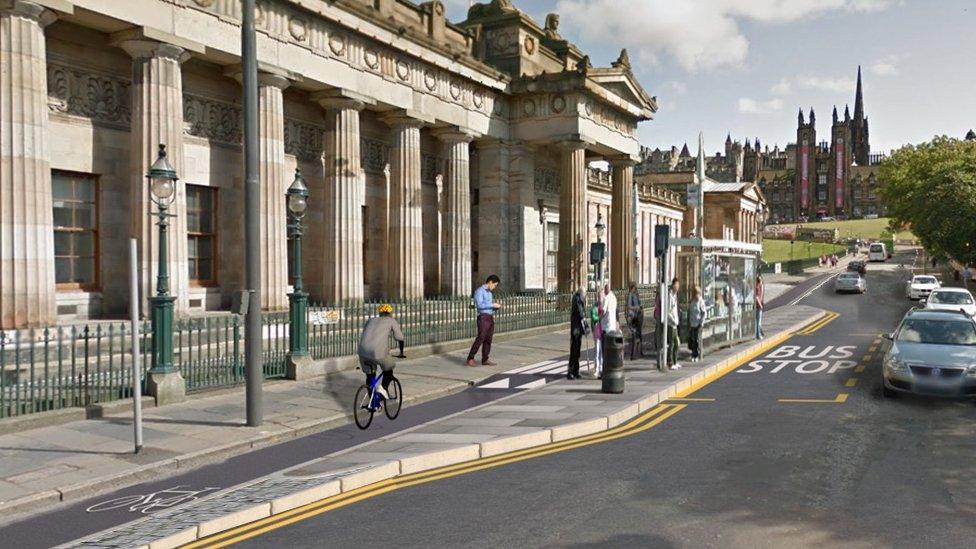
- Published12 September 2017
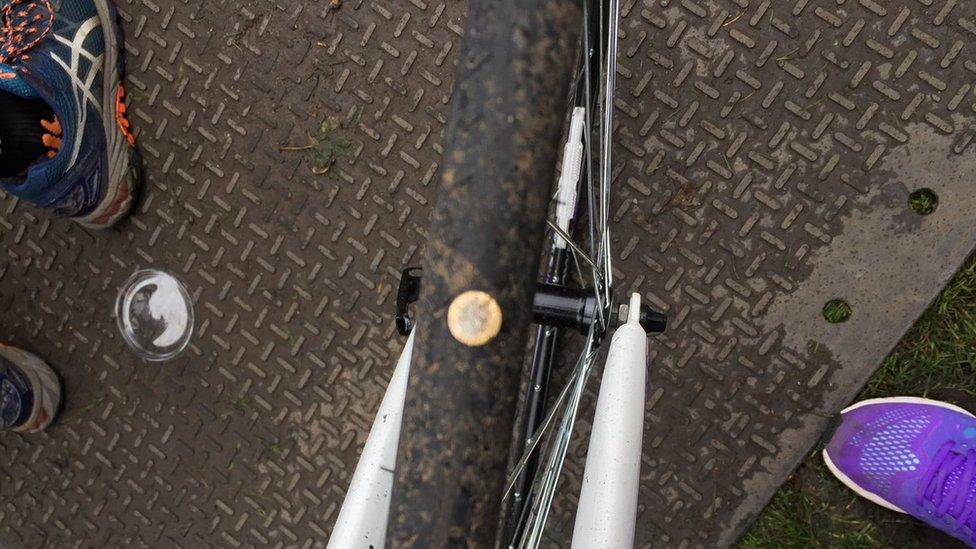
- Published3 September 2017
